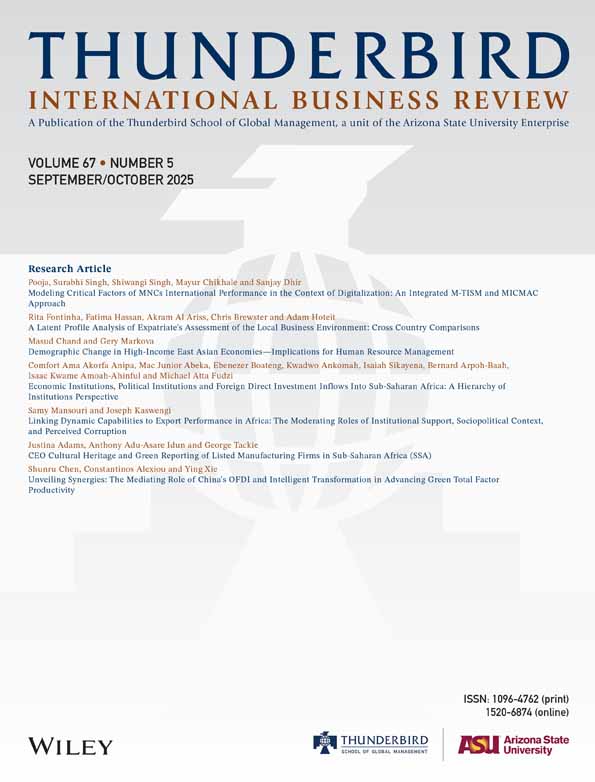Regional inequality and poverty in pre- and postreform China: Can entrepreneurship make a difference?
Abstract
China's reforms have been associated with significant increases in the country's income and output. Yet, income inequality and poverty are still posing significant challenges to the country's economic landscape. One possible way of meeting these challenges is through the promotion of an entrepreneurial culture. The analysis is conducted using selected periods of regional economic development as its background. As a reasonable approximation, these periods are: the pre-1978 period, the 1980s, the 1990s, and the 2000s. Income inequalities and poverty trends are then examined for China's regions. In addition, the extent of the regional gap is measured and regional poverty levels and inequalities across counties are examined. The role of entrepreneurship in alleviating poverty in China is explored. © 2012 Wiley Periodicals, Inc.




